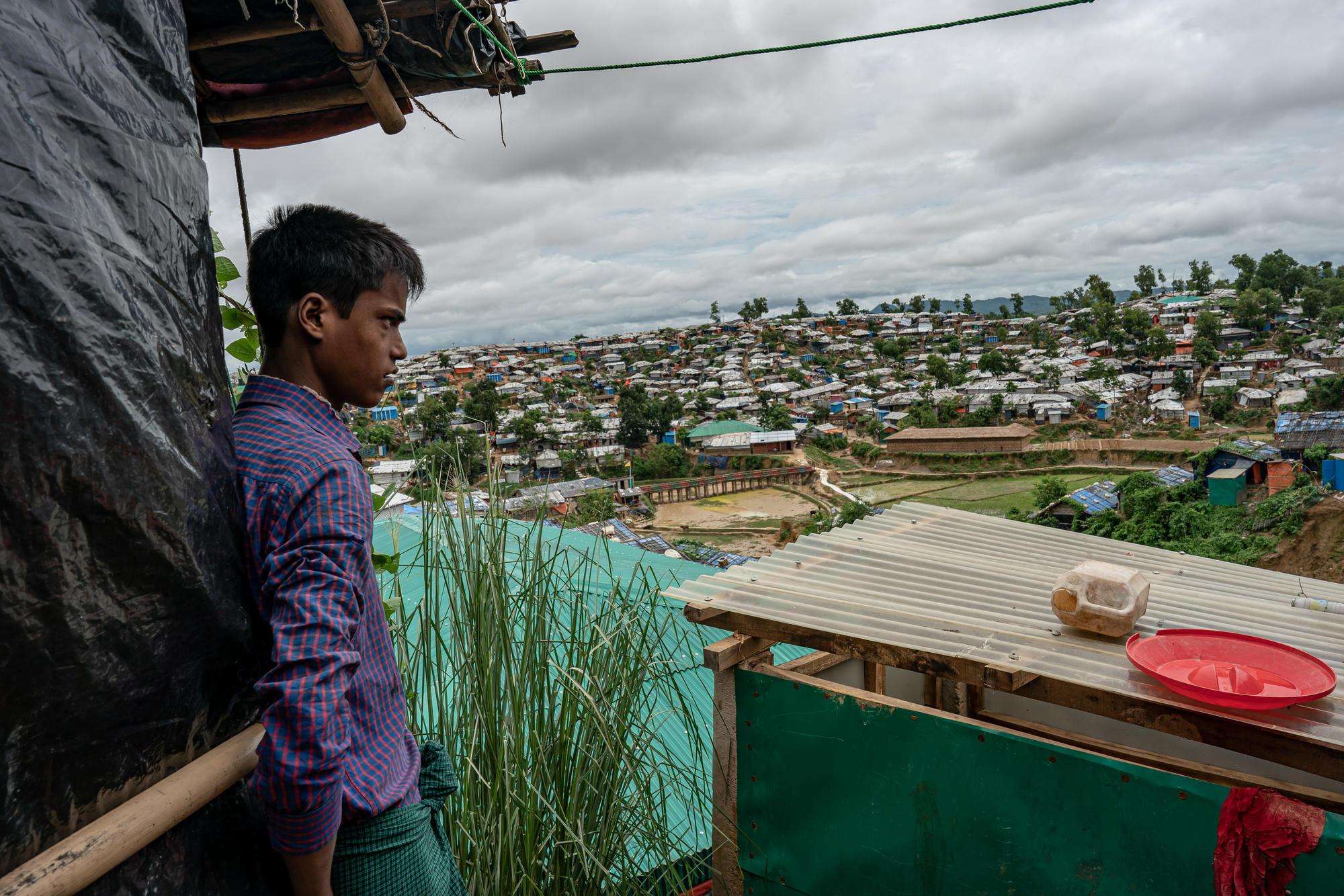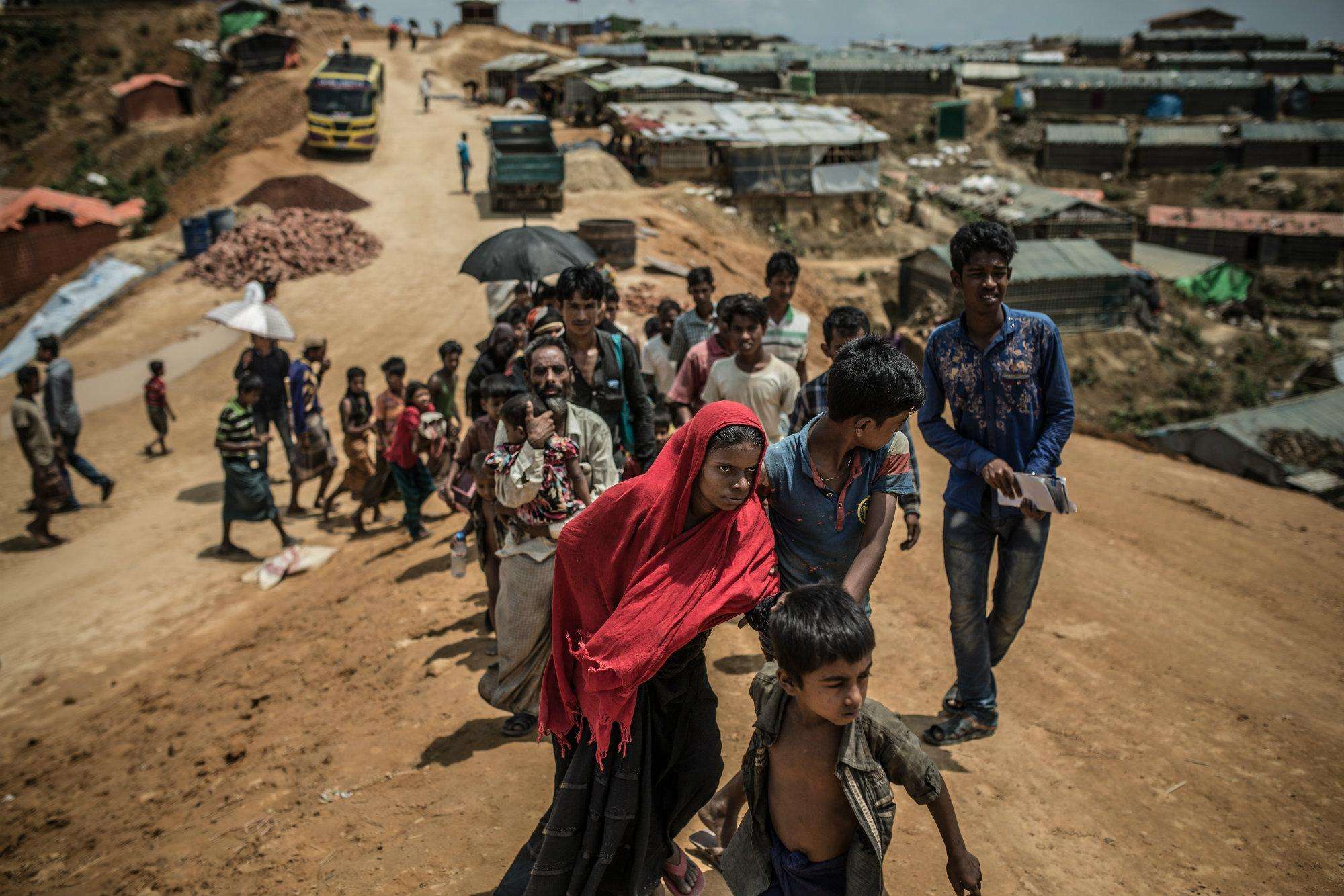In Jamtoli refugee camp, Bangladesh, a loudspeaker at the mosque comes to life at an unscheduled hour. Instead of the midday call to prayer, an imam asks his listeners to pay attention to their daily anxieties and seek help at the nearby Doctors Without Borders/Médecins Sans Frontières (MSF) primary health center.
“The community trusts me; I believe mental health programs are needed for everyone’s peace of mind,” said Imam Sayeed Abdul Majeed [name changed on request].
Almost all of Imam Majeed’s listeners are Rohingya refugees who fled targeted violence against them in Rakhine state, Myanmar, in August 2017. Before fleeing to Bangladesh, many refugees experienced or witnessed horrific violence and many lost family members. In the sprawling refugee camps in Cox’s Bazar they live in cramped, overcrowded makeshift shelters, without enough food, clean water, or toilets. Their lives are on hold, their futures uncertain.
“We are increasingly seeing new cases of generalized anxiety and depression,” said Pooja Iyer, MSF’s psychologist in the Jamtoli and Hakimpara health centers. While physical wounds might have healed, the memories of violence and loss of families through death or separation are still painful.
Two years on, mental health needs have evolved. Traumatic memories combined with unemployment, anxiety about the future, poor living conditions, and little or no access to basic services such as formal education leave the Rohingya refugees vulnerable to long-term psychological harm.
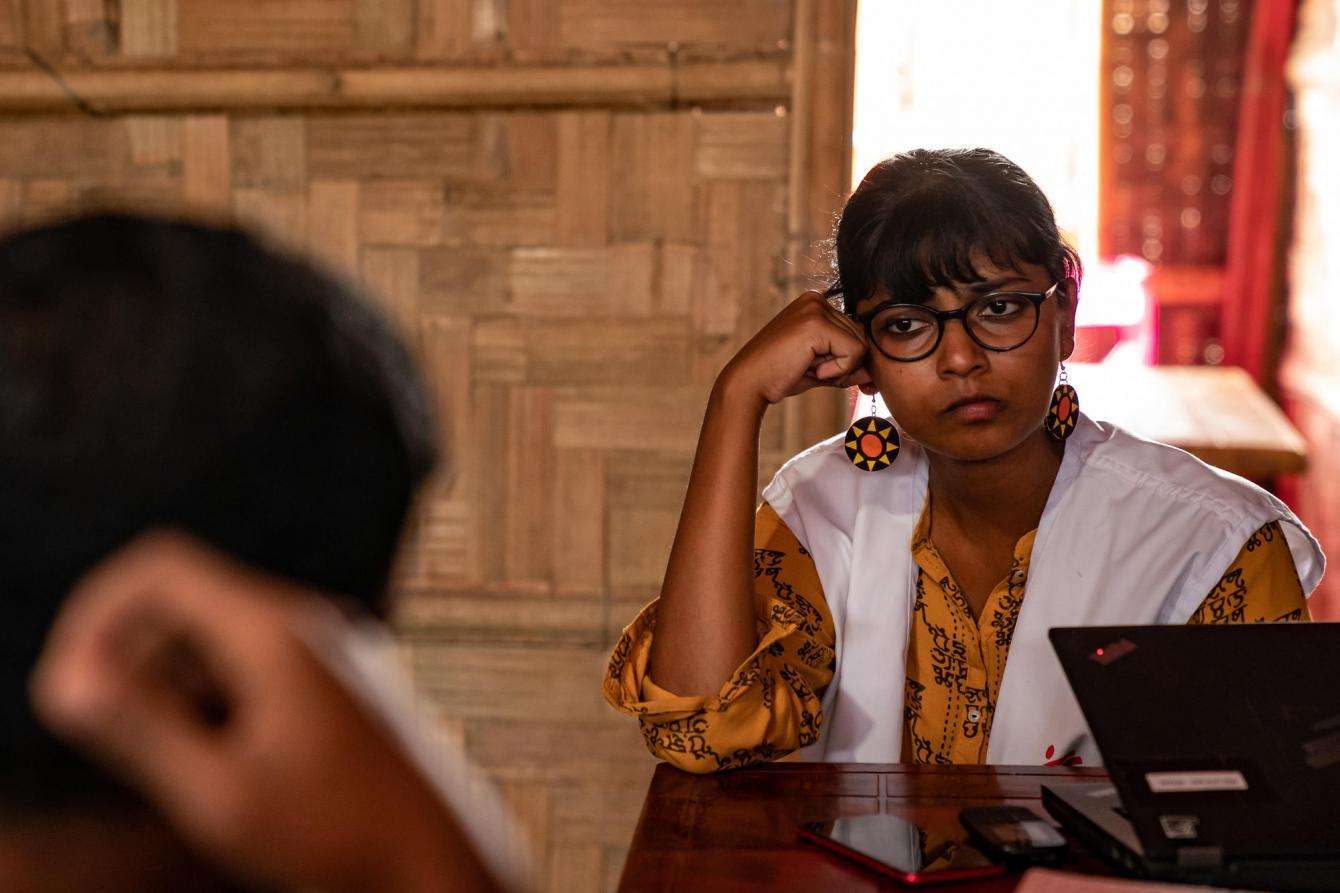
Gaps in mental health care
Nearly 450 patients seek mental health counseling in the Jamtoli and Hakimpara health facilities alone. The prevalence of chronic psychosis—a severe mental disorder that requires psychotropic treatment—is high among MSF patients. When 17-year-old Rohingya twins Abdul Hasim and Abdul Halim first came to the Jamtoli health center, they behaved like small children and were disconnected from reality. Disorganized thinking, seeing or hearing things that are not there, and other behaviors exhibited by the twins are typical signs of psychosis.
Many MSF patients complain of nightmares and flashbacks. Aggressiveness, suicidal tendencies, delusions, and substance addiction are also common. MSF psychologists say these are symptoms of trauma and unresolved grief. Other patients suffer from bipolar disorder, schizophrenia or other psychoses, and psychological difficulties linked to epilepsy.
When the influx of refugees in 2017 began, psychosocial support was essential to helping survivors cope with the trauma of suffering extreme violence. Today, psychiatric care, combined with psychosocial support, is necessary to alleviate the mental health conditions exacerbated by life in the camp.
The need for mental health care remains an unaddressed gap. Increasing long-term comprehensive mental health services requires additional resources and personnel to evaluate the true extent of mental health issues in the refugee camps. The health response needs trained psychiatrists who can diagnose and prescribe medicines to treat severe mental disorders.
Another gap is services for children with developmental, neurological, or learning disabilities or delays.
“We have patients with cerebral palsy, attention deficit disorder, and autism-spectrum disorders who cannot go to a regular school or a learning center, as they get teased and bullied,” said Iyer. “They suffer in silence.”
MSF health facilities across the Cox’s Bazar district—which more than 1,500 square miles—aim to support local health structures in addressing the growing needs of patients. While the majority of MSF’s patients are Rohingya, comprehensive mental health care services are also available for Bangladeshis.
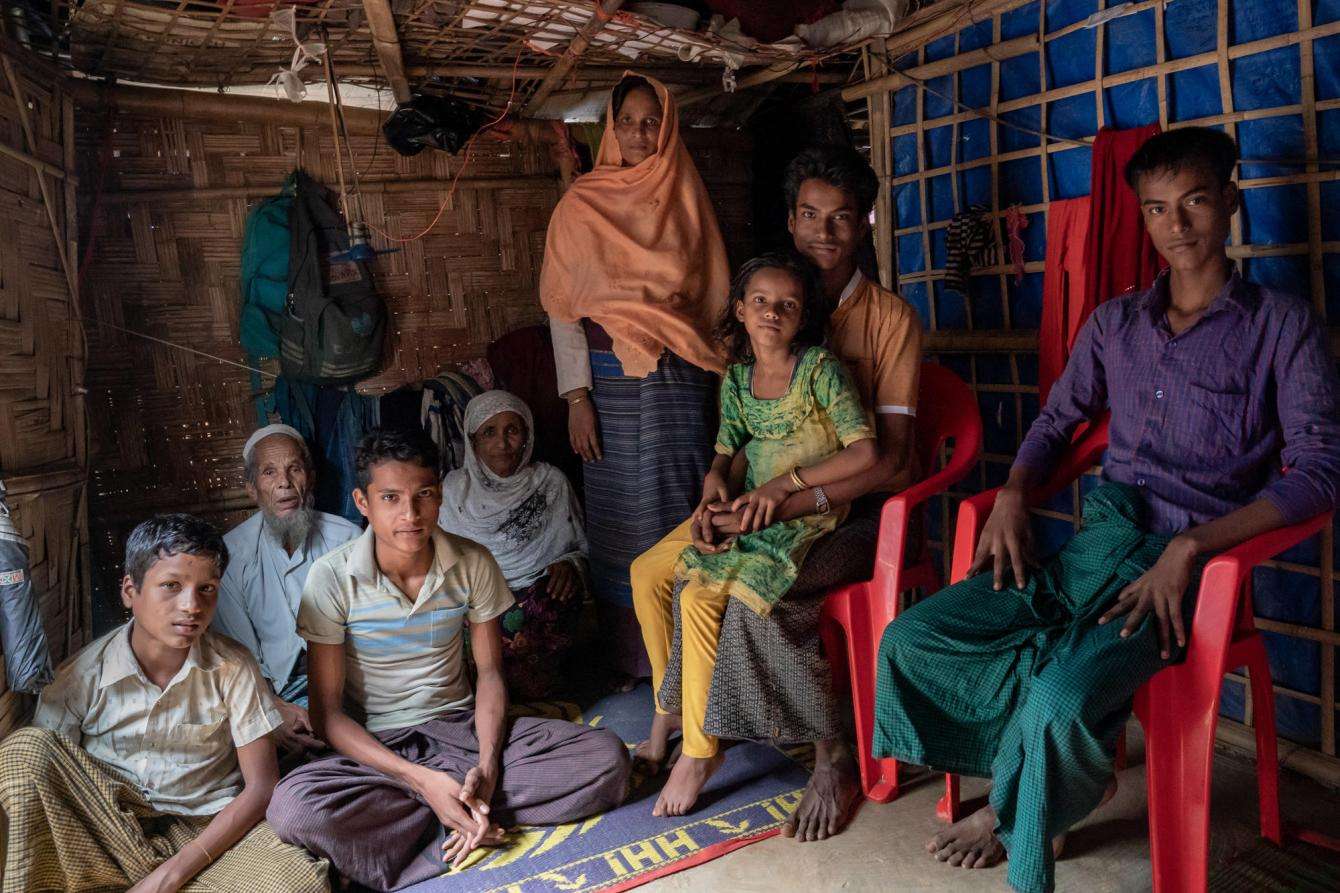
Enduring social stigma
Among both communities, mental health remains poorly understood. Most patients at MSF’s health facilities exhibit visible signs of psychological stress and trauma. Many others suffer from depression, post-traumatic stress disorder, schizophrenia, or psychosis, which go virtually unnoticed by their community.
Patients with visible signs of psychological distress are said to be possessed or under the influence of black magic. The Rohingya community, excluded from health care for decades in Myanmar, often resort to traditional healing due to cultural affinity or beliefs, or a lack of trust in health care providers in the camps.
“Many patients are referred to mental health counselors only when they come to seek medical treatment for physical ailments in our health facilities,” explained Tanya Morshed, an MSF psychotherapist and clinical social worker. She is responsible for strengthening mental health awareness activities among the communities in Kutupalong and Balukhali camps.
“Psychiatric patients who display aggressive behavior are often chained due to fears and misconceptions around mental illnesses,” said Morshed. “Neglect of basic needs of food and cleanliness, and isolation can result in further deterioration of their condition. Those without visible signs endure.”
The most vulnerable, according to Morshed, are those who suffered sexual violence, either in Myanmar or in the refugee camps in Cox’s Bazar. For MSF, sexual violence is an emergency that requires immediate medical attention. Social stigma around it increases the risk of long-term psychological damage. Morshed said children born as a result of rape are often abandoned and are shamed by their communities.
“We need to pay attention to the intergenerational consequence of this crisis,” she said.
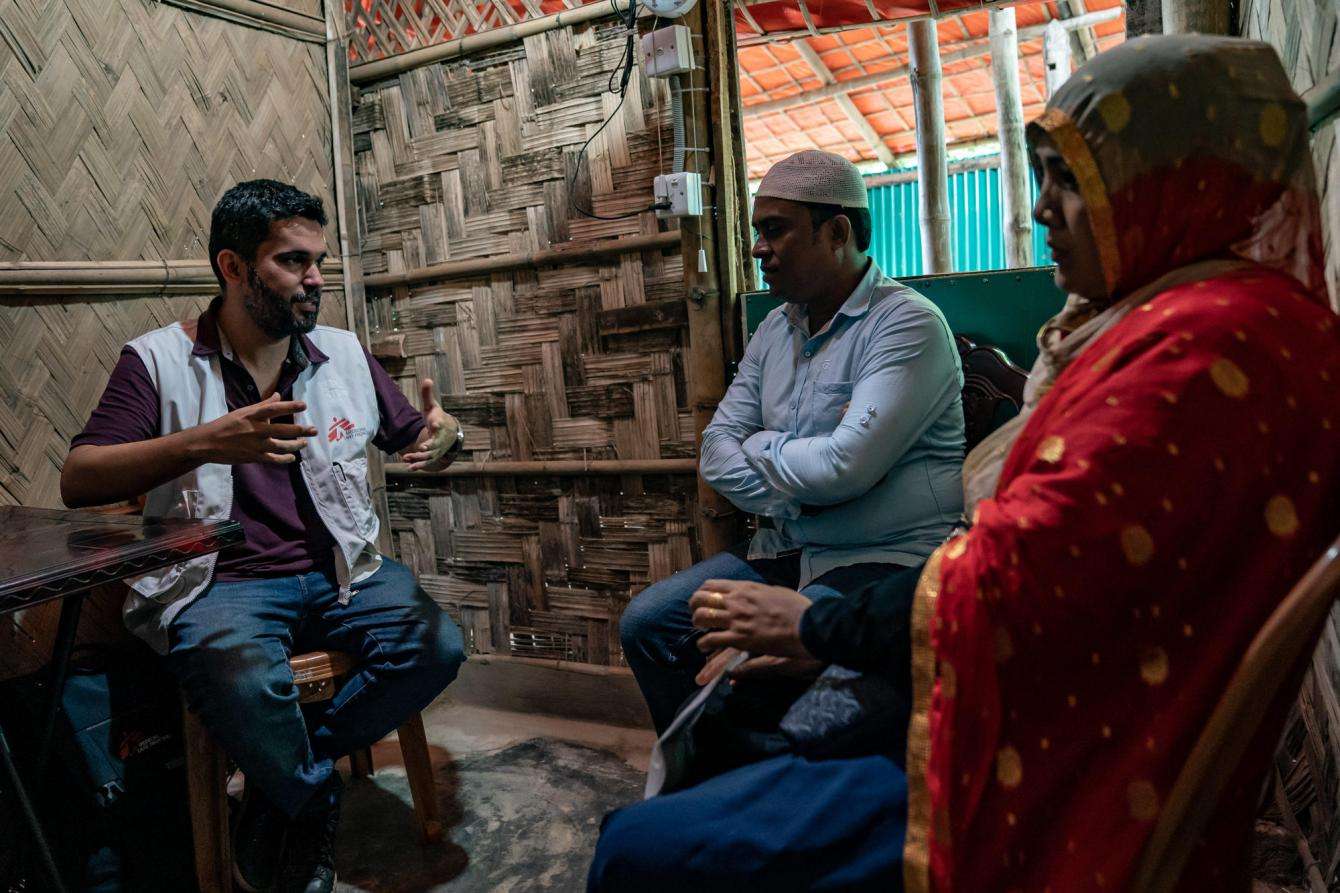
Building trust
Patients’ isolation and loneliness is another challenge. Their inability to contact their families in Cox’s Bazar or Myanmar due to restrictions on movement or telecommunications can worsen existing conditions.
MSF teams tackle stigma and isolation by building trust and solidarity through psychoeducation activities. Community mental health educators (CMHEs) with similar religious and cultural affinities to patients are the key to building trust and awareness of mental health care among patients, caregivers, and community leaders.
Patients and families often abandon mental health treatment, as counseling and medication can take time to be effective. CMHEs help ensure patients continue medication and follow up on psychosocial sessions. Mental health teams comprising CMHEs, counselors, a psychologist supervisor, and psychiatrists ensure each patient has a personalized treatment plan.
The loudspeaker at the Jamtoli mosque crackles again. Imam Majeed repeats his message, optimistic that people will follow his advice. Patients, caregivers, community leaders, and MSF teams are working together to ensure trauma and deprivation does not come to define the lives of those seeking mental health care in Cox’s Bazar. But is there hope in the face of such odds?
“Most of my young patients are scared of men in uniform, as they witnessed violence perpetrated by either the Myanmar army or police,” said Iyer. “When the children improve, they are able to recount their experiences without trembling. Isn’t that hope?”
